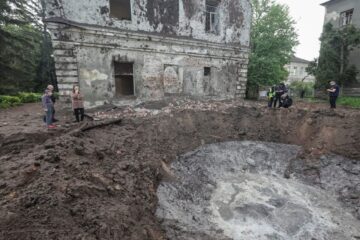Nobel Prize winning poet Seamus Heaney dies aged 74
Irish writer and poet Seamus Heaney, who won the 1995 Nobel Prize in Literature, died Friday at the age of 74, his family said.
One of the English language\’s leading poets, Heaney passed away in a Dublin hospital following a brief illness.
Prime Minister Enda Kenny said it would take Heaney himself to describe Ireland\’s loss, while President Michael D. Higgins hailed his contribution to "letters, conscience, and humanity".
Heaney was awarded his Nobel prize "for works of lyrical beauty and ethical depth, which exalt everyday miracles and the living past".
It was the pinnacle of his collection of honours and awards, which included being made a commander — the highest rank — of France\’s Ordre des Arts et des Lettres in 1996.
"The death has taken place of Seamus Heaney," said a brief statement issued on behalf of his family.
"The poet and Nobel laureate died in hospital in Dublin this morning after a short illness. The family has requested privacy at this time."
Northern Ireland-born Heaney published his first major collection of poems, "Death of a Naturalist", in 1966 and went on to become one of the English language\’s leading poets.
Heaney moved to Dublin in 1972 and was the professor of poetry at Britain\’s Oxford University between 1989 and 1994.
Two years ago, he donated a large collection of his literary papers to the National Library of Ireland.
In a statement, Kenny said Heaney ranked alongside James Joyce, William Butler Yeats, George Bernard Shaw and Samuel Beckett.
"Seamus Heaney\’s death brings great sorrow to Ireland, to language and to literature. He is mourned — and deeply — wherever poetry and the world of the spirit are cherished and celebrated," the premier said.
"For us, Seamus Heaney was the keeper of language, our codes, our essence as a people.
"Today, it would take Seamus Heaney himself to describe the depth of his loss to us as a nation.
"We are blessed to call Seamus Heaney our own and thankful for the gift of him in our national life. He belongs with Joyce, Yeats, Shaw and Beckett in the pantheon of our greatest literary exponents.
"On this sad day, there are no words to describe adequately our nation\’s and poetry\’s grief at the passing of Seamus Heaney."
Higgins — himself a published poet –said Heaney\’s contribution "to the republics of letters, conscience, and humanity was immense".
The arts-loving president paid tribute to the "depth and range" of Heaney\’s contribution and described him as warm, humourous, caring and courteous.
"What those of us who have had the privilege of his friendship and presence will miss is the extraordinary depth and warmth of his personality," he said.
Faber and Faber voiced its pride at having published his works over nearly 50 years.
"We cannot adequately express our profound sorrow at the loss of one of the world\’s greatest writers. His impact on literary culture is immeasurable," the publisher said in a statement.
"He was nothing short of an inspiration to the company, and his friendship over many years is a great loss."
His poetry first came to public attention in the mid-1960s with his first major collection, Death Of A Naturalist, published in 1966.
As the Troubles in Northern Ireland took hold later that decade, his experiences were seen through the darkened mood of his work.
Other collections included: Door into the Dark (1969), Wintering Out (1972), North (1975), Field Work (1979), Station Island (1984), The Haw Lantern (1987), Seeing Things (1991), The Spirit Level (1996), Electric Light (2001) and District and Circle (2006).
Among the academic posts he held were professorships at Harvard and Oxford universities.
Northern Ireland\’s Deputy First Minister Martin McGuinness said he was "very shocked and deeply saddened" at the death.
Heaney is survived by his wife Marie and three children.
Source: AFP and agencies
[do_widget_area inner_adsbar]









